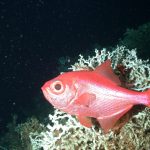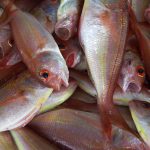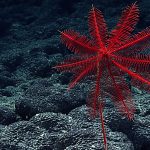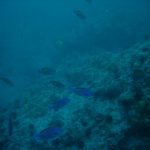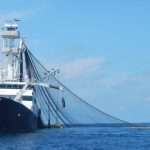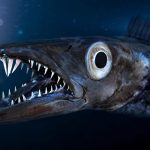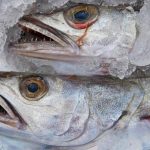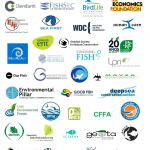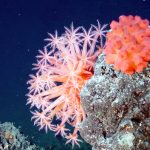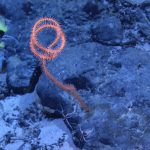For Immediate Release September 27 2019
Bordeaux, France: At the 41st Annual Meeting of the Northwest Atlantic Fisheries Organization (NAFO), 11 countriesi and the European Union met to debate management measures for fisheries and discuss how best to protect deep-sea ecosystems on the high seas in the northwest Atlantic.
NAFO has closed 21 High Seas areas to bottom-fishing activities over the past 13 years in order to protect deep-sea ecosystems and biodiversity. These closures have encompassed the majority of the region’s seamounts—submarine mountains that are home to a great variety of life.
This year, the last remaining trawl fishery on seamounts in the NAFO area—the fishery for the splendid alphonsino on the Corner Rise seamount chain—has finally been closed after several years of contentious debate, but only following the near extirpation of the stock. As well, numerous areas where corals and sponges are known to occur along the continental shelf and slope in the area – the Grand Banks and the Flemish Cap – remain open to bottom fishing, which may destroy these fragile, long-lived, habitat forming species. NAFO will review all closures in 2020 and will complete comprehensive assessments of fishing impacts by 2021.
“The good news is that the trawl fishery on the seamounts has been closed but it’s very disheartening to see yet another deep-sea species be essentially fished out”, says Susanna Fuller, Senior Projects Manager at Oceans North and an observer at this year’s NAFO meeting. “It is clear that NAFO’s 2006 commitment to sustainably manage deep sea fisheries has not been upheld.”
Additional measures adopted this week at NAFO, marking slow but continued progress in protecting deep-sea ecosystems and species, include an agreement to avoid scientific bottom trawl surveys in areas closed to commercial fishing to protect sensitive ecosystems; improvements in catch-data reporting protocols; and long-overdue measures to ensure that bycatch of deep-sea corals, sponges and other vulnerable species can be formally recorded. NAFO also improved protocols for recording bycatch of Greenland shark.
Disappointingly, several quota decisions were above science advice, including for redfish, witch flounder and white hake. Despite objections from some countries, NAFO also agreed to open the shrimp fishery on the Flemish Cap which has been closed since 2011, by allowing over 2,500 fishing days and no official catch limits.
“It is astounding that in this day in age, developed fishing nations would open a fishery at the first sign of recovery, essentially as a free-for-all,” says Fuller. “Shrimp have likely recovered as a result of overfishing cod and redfish, so we really are looking at single species and ecosystem mis-management.”
A number of countries, non-governmental organizations, and the fishing industry are also concerned over the ongoing oil and gas drilling permitted by Canada in areas that NAFO has closed to trawling to protect sensitive ecosystems. No scientific data was transmitted to NAFO regarding the 3 oil spills in 2019 that occurred adjacent to the NAFO area. Furthermore, Canada is currently conducting a regional assessment that may result in permits for up to 100 new oil wells— some of which will be in the NAFO regulatory area—but has not yet engaged formally with any of the countries who fish in the NAFO area.
The IPCC report on Oceans and the Cryosphere was released during the same week as the NAFO meetings. It predicts continued impacts on fisheries as the oceans warm and become more acidic.
“We have a global climate crisis and biodiversity crisis, both of which are affecting our oceans,” said Matthew Gianni, co-founder of the Deep Sea Conservation Coalition. “While NAFO is at least trying to manage deep-sea fisheries to prevent further damage to deep-sea biodiversity on the high seas, Canada is opening up new areas to oil and gas exploration in these biodiversity hotspots at a time when the countries need to reduce, not increase, production of fossil fuels.”
For more information, please contact:
Sian Owen,
Coordinator, Deep Sea Conservation Coalition
deepseacoalition@gmail.com
+31 648 50 25 69
Matt Gianni
Political and Policy Advisor, Deep Sea Conservation Coalition
matthewgianni@gmail.com
+ 31 646 16 88 99
i The Contracting Parties (member countries) of NAFO are Canada, Cuba, Denmark (in respect of Faroe Islands and Greenland), France (in respect of St Pierre and Miquelon), Iceland, Japan, Norway, Russia, South Korea, Ukraine and United States plus the European Union.
Read the DSCC’s NAFO-related documents here.

